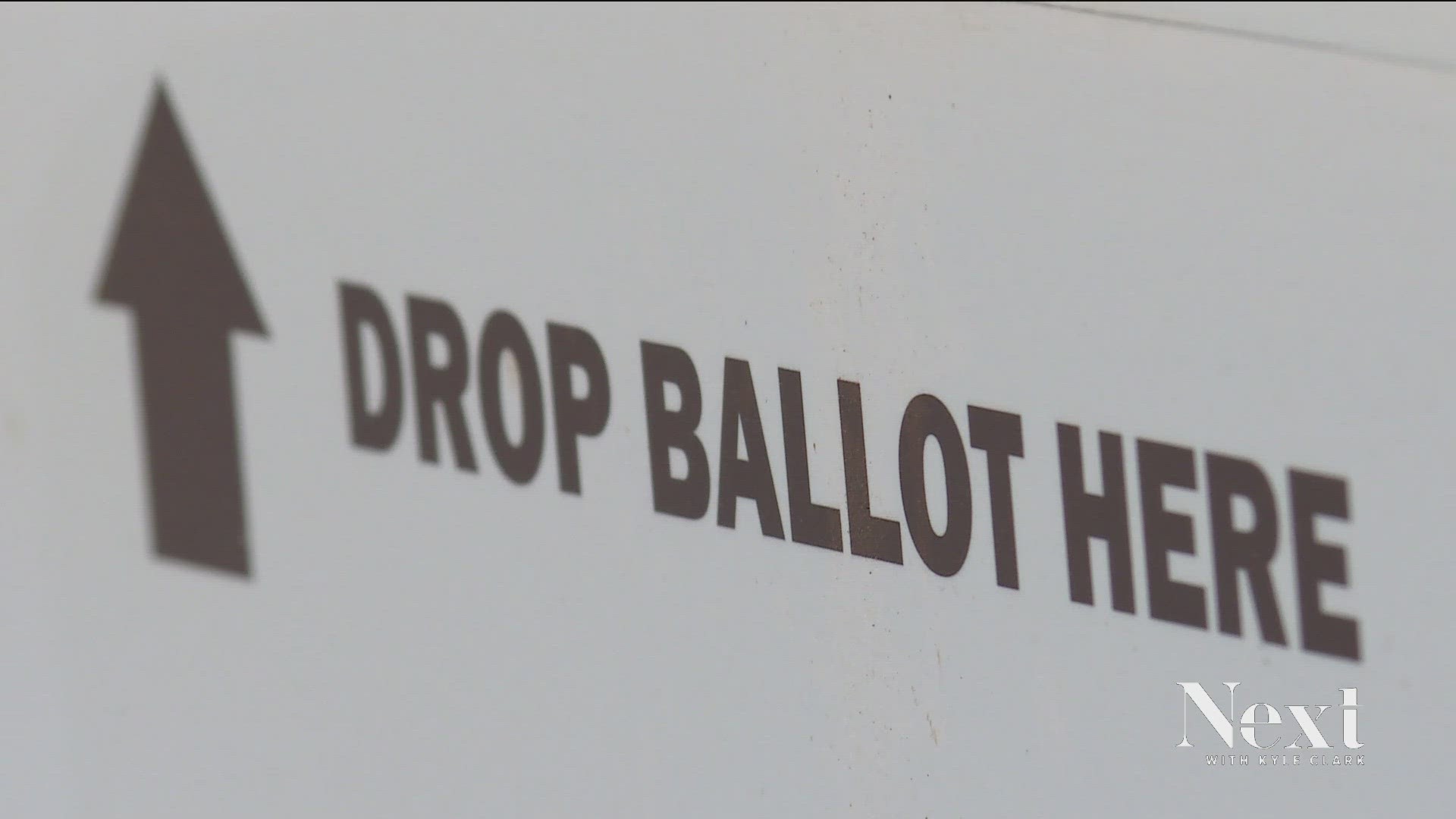DENVER — When citizen-initiated proposals end up on the ballot, there is an inside baseball-type process they must go through before voters get to see them.
On Tuesday, three ballot proposals to overhaul how Colorado conducts elections were discussed in a review and comment hearing in front of Legislative Council staff and the Office of Legislative Legal Services at the State Capitol.
It is an opportunity for the legislative legal team to understand the intent and objective of citizen-proposed ballot issues.
The three proposals by voters Charles Duck and Roberta Lynn Moreland, and supported by former DaVita CEO Kent Thiry, would make several changes to Colorado’s elections including:
- Require candidates to collect signatures to get on the ballot, with unaffiliated voters being allowed to sign.
- Primaries would consist of candidates of all parties running against each other with the top four advancing to the general election.
- General elections would include ranked choice voting, where you can pick multiple candidates and rank them in order of your preference.
- State House and Senate vacancies would be filled by special elections and not by vacancy committees.
- Ballots would be counted by 11:59 p.m. on Election Day.
“The term is ‘as soon as practicable,’” said David Meschke, the attorney for the ballot proposals.
The last change would put into the state Constitution the following:
“It is the intent of the People of Colorado that all votes lawfully cast are counted before 11:59 p.m. on Election Day, and when not reasonably possible, as soon as is practicable.”
“The only thing that ends on Election Day is your ability to cast an eligible ballot. It should not be a deadline for me to count eligible ballots because we want to make sure the security and transparency and integrity of elections stays to the highest as they are considered across the nation,” Republican Weld County Clerk Carly Koppes said.
Koppes and Democratic Chaffee County Clerk Lori Mitchell attended the hearing. They said that clerks were not consulted before the proposals to overhaul elections were submitted.
“There’s a lot of big, drastic changes,” Mitchell said. “I just think that this would throw a grenade right in the middle of our election model.”
Regarding the counting of ballots by 11:59 p.m., currently clerks have until eight days following the election to complete counting.
Ballots that were returned in the wrong county get swapped by clerks to the correct county in the days after an election. Then, those ballots are still counted.
Voters who forgot to sign a ballot envelope or had a discrepant signature or an ID issue have eight days to cure the problem and have their vote counted.
And military and overseas voters can have their ballot accepted and counted up to eight days after an election.
“Being a larger county, and the size of my county, that is just not physically possible for all of the eligible ballots on Election Day that are cast to get to us in a timely manner, to make sure that I can uphold the security, the transparency and the integrity of my process and procedures to make sure that actually every eligible ballot is counted in a timely fashion,” Koppes said. “A timely fashion is not putting in a restriction of 'by 11:59 p.m.'”
“11:59 is not a hard and fast deadline. Accurate reporting of election results is always the goal,” Meschke said.
The next step in the process if for the ballot proposals to be heard by the State Title Board, which determine if the ballot issue meets state law by only dealing with a single subject. If it is approved, the group can start collecting signatures to qualify the issue for the ballot.
SUGGESTED VIDEOS: Next with Kyle Clark

